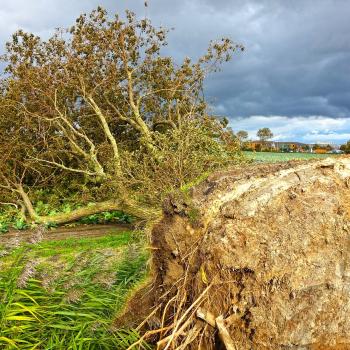Judge Not Lest Ye Be Judged
One of the hallmarks of shame is its employment of judgment. Here, by judgment I am not referring to the necessary, everyday process of discernment required by each of us for navigating our lives wisely. Nor am I considering the actions taken by maturing, flourishing people to set appropriate limits for themselves or others, be that within a family, church, business or government. Rather, I am referring to the spirit of condemnation or condescension with which we analyze or critique something, whether ourselves or someone or something else. I may say to myself, I should have done better at that assignment. What is crucial is the emotional tone that undergirds those words. The spirit of judgment Jesus warned against is such a common part of our mental lives that we barely notice its presence. In fact, it can become so automatic that its manifestation does not require spoken words but rather presents as something felt. Nor is it necessary to be overtly harsh; indeed, much of what passes as "reasonable observations" about ourselves or others is merely cloaked judgment.
Will believed he knew how to get the most out of his employees, which was to regularly point out their shortcomings so as to "encourage" improvement. He was unaware that his constant criticism was one of the reasons there was such a high turnover rate in his company. He had always assumed that people simply were either unwilling to work hard or to accept honest feedback. It never occurred to him that his penchant for managing people in this way was rooted in his own sense of inadequacy and shame, which he had learned to cope with by turning it outward toward others.
Parents experience a similar result when we have to discipline our children, especially our teenagers, whom we believe we can reason with by the use of our impeccable logic (letting them know that ours is patently obvious and theirs is groundless). We believe we are merely correcting their actions, but fail to see that in offering what we consider to be necessary measures, shame enters the process. We are perplexed at why they don't respond to our logical arguments for why they shouldn't be smoking pot or hooking up with their friends.
But it is important to be aware that the act of judging others has its origins in our self-judgment. As I often tell patients, "Shamed people shame people." Long before we are criticizing others, the source of that criticism has been planted, fertilized and grown in our own lives, directed at ourselves, and often in ways we are mostly unaware of. Suffice to say that our self-judgment, that tendency to tell ourselves that we are not enough—not thin enough, not smart enough, not funny enough, not . . . enough—is the nidus out of which grows our judgment of others, not least being our judgment of God. The problem is that we have constructed a sophisticated lattice of blindness around this behavior, which disallows our awareness of it.
Eventually, judgment, and the shame that is its master, can become the source of an ever-enlarging circle of conflict. We have all had experiences in which someone's criticism of another, even though subtle at first, expands to include additional people until whole systems are involved and corrupted by it. Soon enough, what started out as Mary's stated opinion about Stan's proposal during the school board meeting devolved into entire groups of people publicly choosing sides not just about how to spend several thousand dollars but privately about personalities, with anger and hurt strewn everywhere in its wake. It doesn't take much to make the jump to how these forms of conflict, writ large on the community or world stage, lead to the violence we see all around us.
Hide and Seek
Another feature of shame's presentation is that of hiding. Whether it is the involution into the silence of our own minds or the literal turning away from someone with a downcast facial expression with eyes lowered, shame leads us to cloak ourselves with invisibility to prevent further intensification of the emotion. It is not hard to bring to mind a secret you have worked hard to keep as a countermeasure against the rejection you anticipate you will have to endure should someone find out the truth about you. The expense of this labor is often buried as hidden cost, as we collect multiple secrets and keep them neatly stacked in our closets—until the closet can no longer contain them.
This clandestine behavior manifests across the entire spectrum of what we would generally consider to be noble or ignoble activity. We can be a felon or a Rhodes Scholar. In ether case we will have elements of our life that are expressions of shame, hidden in our embezzlement or our appointment to the Federal Court of Appeals bench. Stephen's diligent work was certainly a tribute to his devotion to having spent hours honing his skill as a trial lawyer. But after his marriage began to crumble under the weight of having committed far less energy to his wife and children than to his clients, he was brought up short. Although judged by his peers to be unsurpassed in his profession, he eventually was willing to admit that a great deal of his work was energized by his longstanding worry of being found out to be wrong. Wrong about a case. Wrong about his choice of profession. Wrong about his ideas about politics or theology. Wrong about his ideas about God. He recounted how growing up his family dinner table conversations, ostensibly couched merely as playful verbal jousting, became his father's opportunity to criticize his ideas—all in the name of needing to make sure Stephen's thinking was sound about everything. Eventually this gave birth to not only a way of studying but also living in general that made the management of feeling "not smart enough" his number one emotional priority. Given his otherwise amiable and kind demeanor, no one would have guessed the degree to which he covertly lived in the midst of his shame.




